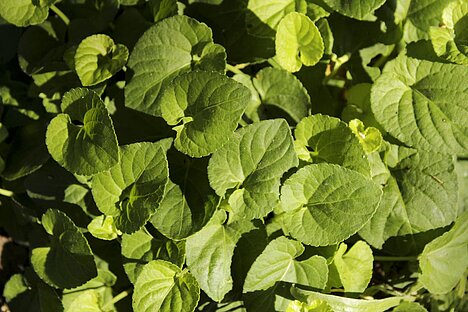Rockrose

Cistus is a plant that grows in southern Europe and North Africa and has been known for its healing properties since ancient times. Cistus can also have many positive effects on dogs, for example for infections, skin problems or tick infestations. In this article, you will find out what rockrose is, how it works and how you can offer it to your dog.
What is rockrose?
Rockrose (Cistus incanus) is a shrub that can grow up to one meter high and bears pink or white flowers in spring and summer. The leaves are gray-green and have a resinous surface. Cistus is a polyphenol plant, which means that it contains many antioxidant and anti-inflammatory substances that can strengthen the immune system and protect against free radicals. Cistus also has antibacterial, antiviral and antifungal properties.
How does rockrose work in dogs?
Cistus can be used in dogs in various ways, depending on the objective. The most common areas of application are
- Protection against infection: rockrose can reduce the risk of colds, bronchitis or other respiratory infections by strengthening the mucous membranes and inhibiting the multiplication of viruses and bacteria. Cistus can also help to alleviate the symptoms of gastrointestinal infections or fungal infections and promote healing.
- Skin care: Cistus can be used for skin problems such as eczema, allergies or inflammation by soothing the skin, reducing itching and accelerating wound healing. Cistus can also protect the skin from UV radiation and thus prevent skin cancer.
- Tick protection: Rockrose can act as a natural tick repellent by making the dog's scent unattractive to the parasites. Studies have shown that dogs that regularly drink rockrose tea or have rockrose powder in their food have fewer tick infestations than dogs without this treatment.
How can rockrose be offered to dogs?
Rockrose is available to buy in various forms, for example as tea, powder, tablets or tincture. Depending on the area of application, you can choose one or more forms. Here are some examples:
- Tea: Cistus tea can either be offered directly to the dog to drink or diluted with water. You can also dip a cloth in the tea and use it to dab inflamed areas of skin. To make one liter of tea, take about two teaspoons of dried rockrose leaves and pour boiling water over them. The tea should steep for about ten minutes and then cool.
- Powder: Cistus powder can be mixed into the dog's food or given as a snack. You should make sure that the powder consists of pure rockrose leaves and does not contain any additives. The dosage depends on the dog's weight; a rule of thumb is about one gram of powder per ten kilograms of body weight per day.
- Tablets: Cistus tablets are a practical alternative to the powder if you don't want to give your dog additional liquids or if he doesn't like the powder. The tablets usually also contain other ingredients such as yeast or magnesium stearate, which are intended to improve tolerance. The dosage depends on the package leaflet, usually one to two tablets per day.
- Tincture: Cistus tincture is an alcoholic extract of cistus leaves, which is particularly concentrated and should therefore only be administered in small quantities. The tincture can be dripped into the dog's mouth or applied to the skin. The dosage depends on the alcohol content and the concentration of the tincture; you should follow the manufacturer's instructions or ask a vet for advice.
Are there any disadvantages or side effects of rockrose?
Rockrose is considered to be a very well-tolerated and safe plant that has no serious side effects. However, there are a few points to bear in mind before giving your dog rockrose:
- Allergies: As with any plant, your dog may have an allergic reaction to rockrose. This can manifest itself, for example, as a skin rash, itching, swelling or difficulty breathing. If you notice such symptoms, you should stop using rockrose immediately and consult a vet.
- Interactions: Rockrose can influence the effect of other medications, for example blood thinners, antibiotics or painkillers. If your dog is taking such medication, you should discuss with your vet beforehand whether treatment with rockrose is advisable.
- Overdose: If the dosage is too high, rockrose can lead to gastrointestinal complaints such as diarrhea, vomiting or nausea. This can happen especially with small or sensitive dogs. You should therefore always adhere to the recommended dosage and observe your dog's reaction.
Rockrose is a versatile medicinal plant that can have many positive effects on dogs. It can strengthen the immune system, prevent or alleviate infections, treat skin problems and repel ticks. Rockrose is available to buy in various forms, which can be selected depending on the area of application. Cistus is very well tolerated and has hardly any side effects if it is dosed and used correctly. Nevertheless, you should always be aware of possible allergies or interactions.
If you notice any signs of hypersensitivity or poisoning in your dog, you should see your vet immediately. We are not a substitute for a vet, but we try to be as accurate as possible. Every dog reacts differently and we recommend you get a second opinion or consult your vet if in doubt.
Stay healthy and take good care of your four-legged friend!😊